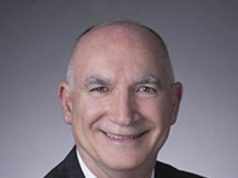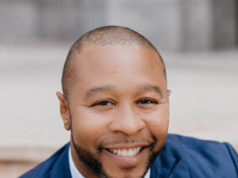A rare political collision is occurring in Texas: The left and the right have backed into each other, both deciding that long sentences for most drug offenders are inhumane, ineffective, and expensive.
Progressives think such sentences are way more than needed to fit the crime. Increasingly, conservatives think they’re overkill for another reason: We can’t afford it.
U.S. Attorney General Eric Holder has instructed federal prosecutors to avoid charging nonviolent drug defendants with crimes that carry mandatory minimum sentences.
About half of federal prisoners are there because of drugs, the numbers up from 4,700 in 1980 to 98,000 now. The cost of running federal prisons has increased 1,700 percent — to about $7 billion a year.
Such reliance on incarceration is financially unsustainable, Holder told the federal Sentencing Commission, an independent body that sets sentencing policies. And, “It comes with human and moral costs that are impossible to calculate.”
Republican Texas Gov. Rick Perry, at a March 7 panel discussion on criminal justice at the Conservative Political Action Conference, said Texas has shifted to a “smart-on-crime” corrections system, saving money, and human potential, by moving drug addicts toward treatment rather than prison.
“The idea that we lock people up, throw them away, and never give them a chance of redemption is not what America is about,” Perry said.
On March 11, ABC late-night talk- show host Jimmy Kimmel asked Perry about decriminalizing marijuana.
“We’ve kind of done that,” Perry replied. “You don’t want to ruin a kid’s life for having a joint.”
In 2007 Perry agreed with legislators — led by the chairs of the Texas Senate and House committees dealing with corrections policy, Sen. John Whitmire, a Houston Democrat, and now-retired Rep. Jerry Madden, a Republican from Richardson — that long prison terms for nonviolent drug crimes were counterproductive. Harsh penalties for minor drug crimes hurt families, exposed nonviolent lawbreakers to violent ones, made it much tougher to get jobs when prisoners were released, and cost taxpayers a bunch.
Serving on a grand jury for three months in 2012 convinced me of a connection between our harsh attitude toward drugs and inefficient schools. Probably 70 percent of the cases we heard were connected to drugs in some manner — via use, trafficking, or other crimes to get money for drugs. And those defendants, many of them minorities, usually hadn’t gotten an adequate education from our school system.
The tough-on-drugs attitude since the 1980s mostly serves to keep drug prices high. That can attract dropouts to sell drugs: It’s more lucrative than any other job they can get — at least until they’re caught.
Bill Hammond, president and CEO of the Texas Association of Business, wants criminal justice reform. There are 140,000 people in Texas prisons and 11,000 in state jails, he said, at a cost of more than $2.5 billion a year.
Hammond pointed out that keeping someone in prison costs roughly $51 a day, while probation costs less than $3.
Business folks should care, “since the business community collectively pays the majority of taxes,” he said.
The left-leaning Annie E. Casey Foundation has formed a Juvenile Detention Alternatives initiative, based on the idea that all youth in the justice system should “have opportunities to develop into healthy, productive adults.”
The foundation focuses on alternatives “because youth are often unnecessarily or inappropriately detained at great expense, with long-lasting negative consequences for both public safety and youth development.”
Marc Levin, director of the Center for Effective Justice at the right-leaning Texas Public Policy Foundation, working with TAB, said there are better ways to spend tax money than by locking away nonviolent and nonsexual offenders.
“Every dollar spent on prisons that doesn’t need to be spent there can’t be spent on roads, infrastructure, schools,” and all the other things needed for a successful business environment, he said.
One suggestion: As Texas trims the prison population and prison spending, rather than simply not collecting that tax money, let’s instead shift much of it to dealing with the causes of crime.
Let’s have a truly first-class school system, as called for by the Texas Constitution. Let’s have universal pre-kindergarten and after-school programs. And let’s provide first-class healthcare.
To do less than invest in our people is not conservative. It’s shortsighted. Misplacing our priorities is bad for all of us — including business.
Veteran Texas political journalist Dave McNeely can be reached at davemcneely111@gmail.com.













It’s too easy for the public to say “Throw the book at ’em!”, but rarely are those people involved in law enforcement, in particular prosecutors and prison administrators. It’s normally political suicide to even mention lighter sentences, but that hardcore attitude has our prisons in Texas bursting at the seams and I’m having to help pay for it while our schools and state parks get short-changed. Drug and alcohol rehab has come a long way since the old days of diversion therapy and frontal lobotomies. Rehab can actually be successful these days, a big change from 20 or 30 years ago. It sounds like rehab is easy if you only consider movie stars and other celebrities lounging around at expensive, indulgent rehabs in Malibu. For most who go into court-ordered treatment, they’re behind locked doors and incarcerated. These places are stark and stoic with nothing aimed at any sort of fun or self-indulgence. They have to take random drug tests for the length of their parole/probation. If they committed a felony, they’re still a convicted felon for life. I’m sure that some angry-at-the-world person will argue with this and that’s why I usually don’t post comments. However, let the shallow thinkers have at it.
That’s it! Get that phony conservative Perry outta office now! He’s probly off in some hotel room with some floozie smokin’ the stuff. Damn hippie draft dodgin’ longhaired scum! I say we get tough with these punks! Clayton Williams wanted to get tough with them punks and i wuz all fer it! Teenagers smokin’ marijuana! Throw ’em in jail and throw away the key! Give ’em two options the first time they do it, too! Stay in jail for a minimum of five years or enlist in the USMC for a minimum 3 years of active duty. Straighten out these dopehead punks! Started with them damn rock bands back in the sixties. No good greasy, filthy, hippie yippie creeps tryin’ tuh rile everybody up and gettin’ the cops tuh throw tear gas at ’em. Bring back the draft and stiffen all penalties for illegal drug offenses. Minimum five year sentence in the state penitentiary in Huntsville for possession of any amount of marijuana, cocaine, heroin, LSD, any of that hippie crap! These kids today are turnin’ into a bunch of panty waisted little video game slaves and they need a good dose of reality anyway! I tell you whut….
Weird…
In your other comment that you posted on the Keystone pipeline, you were informing me that I have lots of grammatical and spelling mistakes, but it seems as if I am not the only one
Mr. “I can most assure you that I am not an idiot”-Gregg Orange
“The idea that we lock people up, throw them away, and never give them a chance of redemption is not what America is about,” Perry said.
Since f$%^ing when?! Sorry Repubs, tell me it costs too much, that is something you’ve got a proven track record of believing in. But don’t sell us that this is about the addicts.